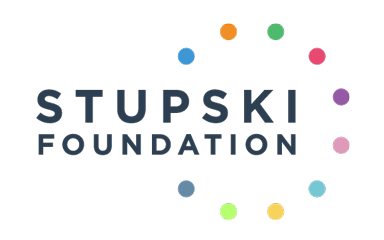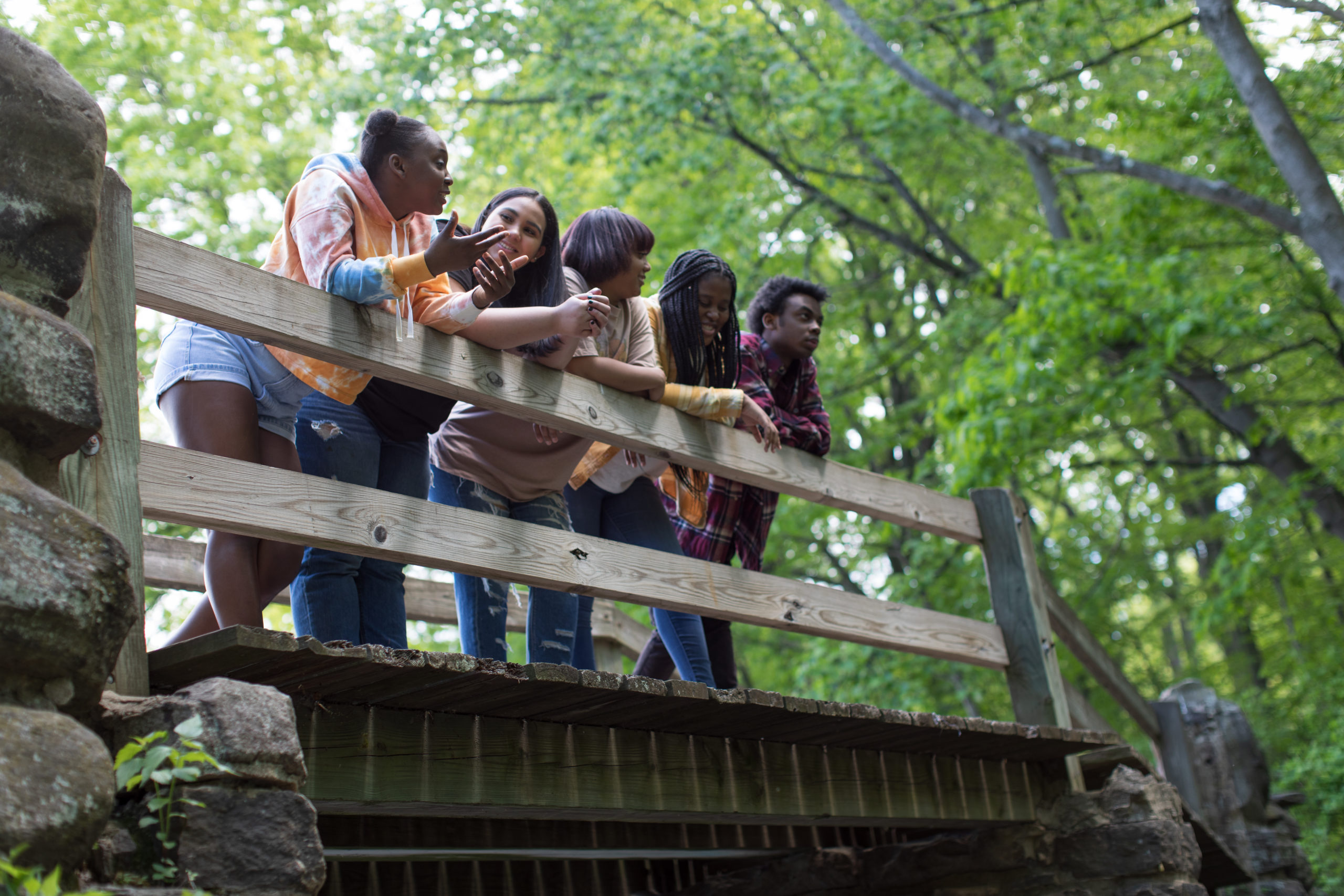Stupski Foundation invites organizations to apply for funding to support efforts that support student and community wellness in 1) Hawaiʻi, 2) San Francisco or Alameda Counties, and/or 3) state or national collaboratives that work in those locales.
About This Opportunity
At Stupski Foundation, we aim to work with others to increase postsecondary graduation and living wage career attainment in Hawaiʻi and the Bay Area among students of color, students from rural communities, and students from under-resourced communities. We hope to help cultivate more flexible, affordable, and student-centered systems of education and work.
One of the most pressing issues impacting students and systems today is mental health. Students across the country are experiencing a deepening student mental health crisis, which has become a top “basic need” that universities, researchers, and funders have identified. In December 2021, the U.S. Surgeon General issued a rare advisory highlighting the urgent need to address our nation’s ongoing youth mental health crisis, which the COVID-19 pandemic significantly exacerbated.
In a study that the California Endowment conducted, three-quarters of young Californians reported feeling anxious in the last year, with more than half reporting feeling depressed. Additionally, in Hawaiʻi, about 2,200 more young people struggled with anxiety and depression in 2020—a 23% increase compared with 2016, according to a study that the Annie E. Casey Foundation conducted. Another consideration is the impact that the pandemic has had on people who support students—namely faculty, staff, and health care professionals. For example, in a 2022 College and University Professional Association for Human Resources survey, 60% of college staff respondents reported that they were likely to look for new employment in the next year. The aforementioned challenges impede students’ ability to thrive and for youth-serving organizations and institutions to retain talent due to burnout.
Accordingly, we invite proposals for policies, programs, and interventions that advance student and community wellness. We will prioritize concept papers that 1) address student and support staff wellness or 2) are innovative pilots and/or existing projects that advance community wellness. Although valuable, we will not consider concept papers that focus on mental health diagnosis and treatment options. Specifically, we are seeking ideas that:
- Are organizational wellness initiatives informed or designed by the student or staff beneficiaries.
- Pilot proactive efforts to build community wellness for students or Transitional Aged Youth (TAY).
- Are from community-based organizations without existing wellness programming.
- Benefit Hawai‘i, San Francisco or Alameda County students, TAY and/or staff who support them.
- Are sustainable with the potential to impact students beyond the grant funding.
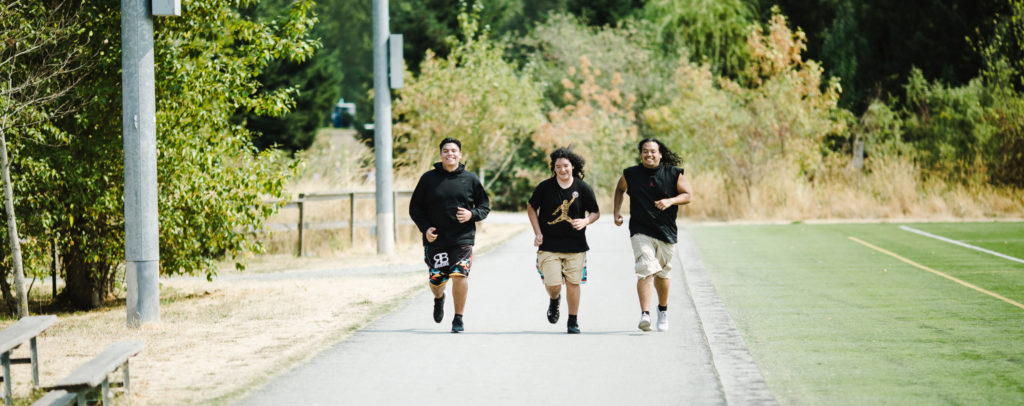
Examples of projects we will consider for funding include, but are not limited to, the following: programs providing wellness-focused experiences to TAY; programs expanding wellness services to staff; projects to expand existing services to include peer wellness programs; creation of safe spaces for TAY to gather and build community; wellness training for students or staff who are working on advancing community wellness; and wellness pilots and innovations that have been generated by the students or staff who will benefit from them.
In an effort to help organizations decide whether it is worthwhile to submit a concept note, we want to offer as much insight into our decision-making criteria process as possible. In that spirit, we offer the following information regarding our priorities in Hawai‘i and the Bay Area:
Hawai‘i Priorities |
San Francisco Bay Area Priorities |
|---|---|
|
|
We anticipate that due to significant interest in organizational wellness and student mental health, we will receive a high volume of concept notes. In an effort to be more transparent and provide as much information as possible for concept alignment, you can access the scoring rubric here that we will use to review concept papers. Additionally, although our funds are limited, we will offer written feedback on concept papers upon request and may refer some concept papers to funders in our networks.
Who Should Apply
- Organizations/collaboratives that serve Hawaiʻi or San Francisco or Alameda Counties, and/or state or national collaboratives that work in those locales
- Organizations that employ, are informed by, and are led by the communities they serve, with prioritized funding for organizations led by Asian American, Black, Indigenous, Latino, Native Hawaiian, Pacific Islanders, and/or other people of color and organizations that demonstrate a history of working with communities of color
- Nonprofit or fiscally sponsored organizations, policy/advocacy organizations, collaboratives, institutions, and government agencies that are prioritizing systems change initiatives. We may also consider some private/for-profit concepts.
How to Apply
For this concept paper, we suggest reviewing our scoring rubric here to assess whether your project is aligned with our selection criteria. Once you determine alignment, please submit an up to two-page concept paper to postsecondaryapplication@stupski.org that includes a brief overview of your organization’s planned efforts to advance student and community wellness solutions, including:
- The vision and goals for your proposed initiative/project
- A description of how your project advances equity
- Where you and the communities you serve are geographically based
- A description of how your leadership is informed and led by the communities you serve
- An estimated total grant budget between $50,000 to $300,000 for Hawaiʻi-based applicants and between $50,000 to $200,000 for Bay Area-based applicants for up to four years (see an example concept paper here)
Note: We anticipate funding a variety of initiatives of various budget sizes. Your budget should be proportional to organizational maturity and project scope and should address the impact this funding would provide that your current funding doesn’t. Stupski encourages a diverse mix of projects at all funding levels.
The Foundation’s Postsecondary Success team will independently review each organization’s website and other publicly available materials. We anticipate receiving more applications than we can fund. After we make decisions, we will send applicants an email indicating their proposal status. In this initial phase, we anticipate funding $3 million in initiatives from across Hawai‘i and the Bay Area. If we do not invite your organization to submit a final application in this round, we may still invite you to do so in the future.
What We Do Not Fund
At this time, the Foundation is generally unable to fund:
- Proposals that do not reflect the priority strategies outlined above
- Proposals that stress mental health treatment and diagnosis options
- Individuals
- Academic research (without implementation plans or community-based organization partnerships)
- For-profit institutions or for-profit programs
- Programs or initiatives that do not prioritize historically underserved communities such as immigrants, refugees, people of color, or low-income communities
- Requests for endowments, lobbying,1 or voter registration funds
Key Dates
- March 3, 2023: We held an optional online information session to answer FAQs about the application process. You may access a recording of the session here (password weYV0@*X) and the accompanying slides here. If you are unable to attend the information session, we will record the information session and post the recording on this webpage. Please note that to ensure equity, we will not be able to meet individually with applicants.
- March 31, 2023: Once you review our selection rubric to assess whether your project is aligned with our selection criteria, please submit a concept paper that is up to two pages to postsecondaryapplication@stupski.org.
- May 13, 2023: Stupski staff will send an invitation to submit a final proposal to selected organizations.
- June 13, 2023: This is the deadline for proposal submissions.
- July 1, 2023: We will award the grants.
FAQs
The following list of questions is not exhaustive. Accordingly, we encourage additional questions and will update this list periodically. If you do not see an answer to your question below, please submit your question here.
We acknowledge that the term “wellness” conjures many different definitions. Due to our limited, albeit flexible, funding, our goal is to support student and community wellness—more proactive approaches to building joyful, thriving communities. More specifically, we will prioritize funding interventions that 1) address student and support staff wellness or 2) are innovative pilot and/or existing projects that advance community wellness. Since there is no one-size-fits-all approach to wellness, we are basing funding for wellness initiatives on how communities define wellness for themselves. During our RFP info session, here is how attendees defined it:
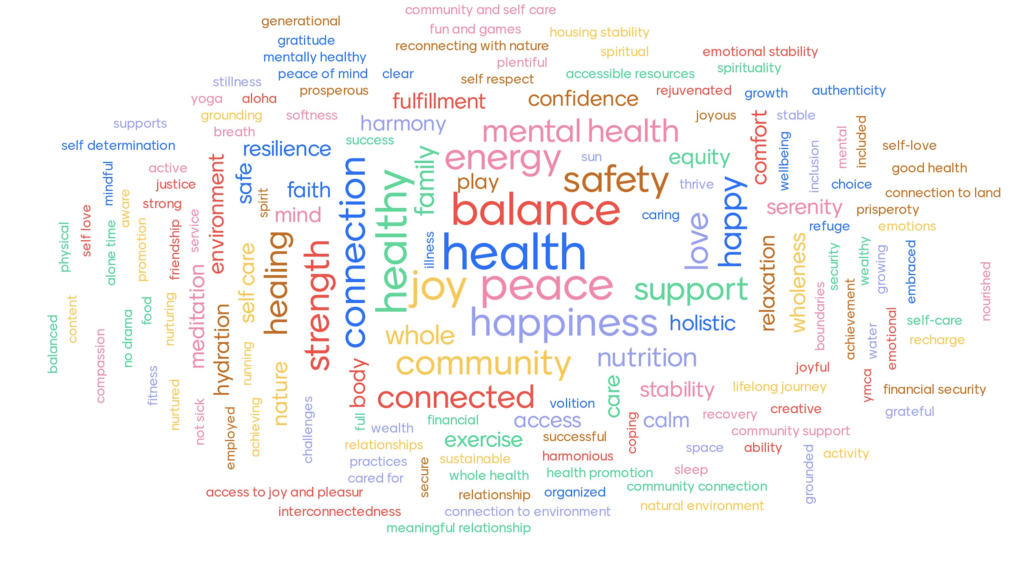
Although mental health diagnosis and treatment are important, we will not fund those initiatives at this time.
Stupski Foundation prioritizes organizations that serve Transitional Aged Youth (TAY), broadly defined as young people ages 18-24. In Hawaiʻi, we are open to funding organizations that serve high school aged youth if they offer postsecondary guidance. At this time, we will not fund organizations primarily serving students who are middle school or younger.
Yes, we welcome concept notes that cover both student and staff wellness.
At this time, the Foundation is generally unable to fund:
- Proposals that do not reflect the priority strategies outlined above
- Proposals that emphasize mental health treatment and diagnosis options
- Individuals
- Academic research (without implementation plans or community-based organization partnerships)
- For-profit institutions or for-profit programs
- Programs or initiatives that do not prioritize historically underserved communities such as immigrants, refugees, people of color, or low-income communities
- Requests for endowments, lobbying,1 or voter registration funds
The number of initiatives we fund will depend on the total applications we receive and the selected initiatives’ budgets. Although we do not have a geographic cap, we are hoping to evenly split funding between Hawai‘i and the Bay Area.
Although it is difficult to estimate the number of projects we will fund, we will collectively fund $3 million in initiatives across Hawaiʻi and the Bay Area. We welcome projects with an estimated total grant budget between $50,000 to $300,000 for up to four years. We anticipate funding a variety of initiatives of various budget sizes.
We anticipate that due to significant interest in organizational, student, and community wellness, we will receive a high volume of concept papers. Although the number of grants we are able to fund at this time is limited, we will offer written feedback on concept papers upon request and will refer some concept papers to funders in our networks.
Hawai‘i Priorities |
San Francisco Bay Area Priorities |
|---|---|
|
|
In Hawaiʻi, projects may range from $50,000 to $300,000 for up to a total of four years. In the Bay Area, we are prioritizing projects that are $50,000 or less per year for four years or $200,000 total.
We welcome concept notes for either current programming or new programs. However, in Hawaiʻi we are prioritizing innovative and new ideas.
Yes. Although we prioritize new grantees, current grantees are eligible for this grant.
Yes, former Stupski Foundation grantees may apply for this grant.
Yes. We encourage and prioritize organizations that advance initiatives related to student success or Transitional Aged Youth (TAY) in Hawaiʻi, San Francisco or Alameda Counties, and/or state or national collaboratives that work in those locales to apply. We also encourage organizations that engage in state and national collaboratives that work in the aforementioned geographies to apply.
We prioritize organizations that have strong ties and partnerships in the Bay Area and/or Hawaiʻi. That said, we are open to receiving concept notes of organizations currently not serving the Bay Area and/or Hawaiʻi, yet aspire and have a plan to do so.
We encourage two-page concept papers with reasonable font sizes and font types. For collaborative projects with multiple partners, we are open to two- to three-page papers to account for multiple partnerships.
We support gradual funding so long as the total budget does not exceed $300,000 (for Hawaiʻi) or $200,000 (for the Bay Area).
We welcome and encourage concept notes for programs, projects, and ideas that are budgeted for less than $300,000 and/or require three or fewer years of funding. That said, we encourage the aforementioned projects to think through a sustainability strategy.
No. However, we will pass on select concept notes that we do not fund to other funders and will provide feedback to organizations that request it.
Yes, you may link to webpages within the two-page concept paper; however, please focus the content of your proposal on the policies, programs, and interventions that address student and community wellness.
Yes, the two-page limit includes attachments.
We welcome concept notes in any format so long as the font/font size is legible and the concept notes are no more than two pages. You can see an example of a previously selected concept note here.
We are open to reviewing concept papers that include narrative and/or data-based framing.
In the concept note phase, we request a high level budget that outlines a general overview of how you may be using the funds (i.e. an approximation of funds going to staff, to stipends, to events, etc.). There is no need to provide an organizational budget during this phase of the process. If your concept notes are accepted for the full proposal phase, we will request a more detailed budget.
For reference, you can review this previously selected concept note with budget.
Stupski Foundation is open to receiving concept notes on a variety of ideas and we offer significant grant flexibility including, but not limited to funds for staff salaries, training for teachers, stipends for young people, and general operating support.
To ensure equitable access to information, we will not be able to meet individually with prospective applicants. We held an optional online information session on March 3rd to answer FAQs about the application process. You may access a recording of the session here (password weYV0@*X) and the accompanying slides here.
We encourage individual community-based organizations (CBOs) and collaboratives to apply. Please specify in your application who is the backbone/lead organization. We recognize that some initiatives (whether an individual CBO or collaboratives) may have a larger budget than funding available in this invitation. We encourage applicants to include a budget that reflects the funding amount they seek, even if available awards are less than the requested amount. We will revisit flexible funding of initiatives during the review process and be in touch to request clarifying information.
We encourage one concept paper per organization or institution. There are some exceptions. For example, different departments within an institution may submit concept papers—however, we do encourage departments at institutions to collaborate as much as possible and coordinate with their foundation or development office where appropriate.
Yes. Although we will prioritize initiatives that support college students and TAY, we are open to select initiatives that support college-bound high school students.
We realize that each organization is unique. Therefore, we will work in partnership with grantees to co-develop learning and evaluation outcomes and reporting requirements. We also welcome reports written for other funders relevant to the project because we acknowledge the significant lift that grantees undertake to prepare such reports. In general, we tend to focus more on informal learning check-ins versus formal data collection and reporting.
We are eager for grantees to be a part of the conversation on mental health and funding initiatives that will help tackle the significant crisis that is staff burnout, depression/anxiety among young people, and so much more. We specifically hope that the field begins to value mental health and wellbeing as a priority for young people and those that serve them. We will tailor specific impact goals and outcomes with each grantee for their initiatives.
Yes, we welcome organizations that request general operating support so long as your proposal addresses community wellness that 1) addresses student and support staff wellness or 2) is an innovative pilot and/or existing project that advances community wellness. We prioritize offering general operating support for entities that have organizational goals on student and staff wellness.
Stupski Foundation prioritizes funding grassroots and non-profit organizations. We also welcome concept notes for for-profit entities so long as they mission based on social impact.
Two team members. Teams should consist of no more than 5 people, excluding the administrative advocate.
In rare instances, a chosen campus may choose to reject receiving funds. In these instances, we will move into our waitlist. We rank order concept notes in the waitlist based on scores from our recommendation committee and will select the highest scoring concept note on the waitlist.
At this time, we cannot confirm if we will be offering grants next year.
Not all team members have to be NACADA members. Last year, we said team members needed to be NACADA members, administrative advocates did not.
No. We assess concept notes and their budgets based on the overall proposal and design of the initiative, not on individual events/asks. We encourage campuses to think about the entire concept of their wellness initiative and then backwards plan towards their budget (inclusive of NACADA membership, conference attendance, etc.). We acknowledge that budgets may shift and change during the implementation of your project and will work with you to accommodate these changes, so long as the changes are within reason.
A gift is typically treated as a discretionary gift to a campus without many “strings” from the donor. By design, a gift has less stipulations and therefore less people overseeing the funds. A grant is typically treated as a reciprocal relationship where the funder/donor has expectations of report back from the use of funds. Regardless of the route a team chooses to take, we will require interaction with the Stupski Foundation. We encourage teams to fully explore what option works best for their campus context.
Yes you can, but we encourage collaboration and streamlining among different departments and initiatives at a single college campus. Please note that we are prioritizing funding a diverse array of institutions and have rarely funded two different projects from a single team in our initiatives. We encourage you to think strategically about how you approach the submission process.
Questions? Please send questions to postsecondaryapplication@stupski.org. Information about FAQs and the online information session will be posted on this webpage, LinkedIn, and in our newsletter. Sign up for our newsletter.
Learn More About the Stupski Foundation
Stupski Foundation is a private spend down foundation that is investing all our assets by 2029 so one day everyone can benefit from the wealth of opportunities and resources in the places we call home. The Foundation focuses on food security, postsecondary success, early brain development, and serious illness care in San Francisco and Alameda Counties and Hawaiʻi. Learn more about our grant-making programs and why we are spending down.
- As a private foundation, Stupski Foundation cannot fund lobbying activities that influence the outcome of any specific election for a piece of legislation, candidates for public office, or take any action inconsistent with IRS section 501(c)(3). We cannot award grant funds earmarked for influencing legislation within the meaning of IRC Section 2925(e).
